- Dog CareDog LifeCommunity
- Photo Contest
Photo Contest- Giveaways
The Unstoppable Dogs
The dogs at their favourite place- the dog beach.
In the sun-kissed seaside city of Huntington Beach, CA, a special Instagram account has been making waves. This account isn’t run by a celebrity or traction-gaining influencer. Instead, what you’ll find is the incredible journey of six rescued, disabled dogs.
Run by their dedicated caretaker Debbie Pearl, The Unstoppable Dogs account (@theunstoppabledogs), has amassed over 107K followers, making these dogs their own kind of celebrity.
The stars of this digital show—Peedy, Zeek, Eddie, Pop, Elliot, and Sydney—are all “handicapable” dogs. Each has a physical disability that requires some sort of aid, whether a custom wheelchair or leg prosthetics. But don’t worry, that doesn’t slow them down. The irrepressible joy these dogs exude as they race along the beach has the power to turn around even the worst day.
Before the Unstoppable Dogs, Pearl had a career in dog training, readying dogs for film and TV with her company Paws for Effect. She also started a non-profit, Dream Fetchers, which brings dogs into communities to provide Animal Assisted Therapy (AAT).
Her life took an unexpected turn when she encountered her first disabled dog, Eddie, a terrier-mix with severe spinal trauma causing paralysis of his back legs. He was found injured, dragging himself through the streets, before being picked up by animal control. “He was at the shelter for about a month,” explains Debbie. “They were going to put him to sleep, and one of the shelter volunteers reached out to one of my rescuers and said, ‘Is there any way you can take this dog? He’s just so full of life.’”
Unstoppable dog Elliot inspires children at a fundraiser for prosthetic limbs.
Debbie and the Unstoppable Dogs en route to the beach.
The newest Unstoppable Dog, Super Stevie.
Dream Fetchers answered the call and took in Eddie. Pearl immediately embarked on a quest to find him a forever home. It proved more challenging than anticipated, however, with potential adopters daunted by the responsibility of caring for a “Wheelie” dog, as Pearl affectionately calls pups in need of a wheelchair. It was then she had an idea.
With Dream Fetchers, Pearl was already visiting children’s hospitals, nursing homes, and veteran centers to provide Animal Assisted Therapy. She considered the impact a disabled dog could have on disabled people. “I thought to myself ‘Maybe I should take Eddie,’” says Pearl. “He could be so inspiring to so many people that I work with.”
“That was my first go-around with a handicapped dog, and the first two weeks I thought ‘I don’t know if I can do this,’” Pearl admits. However, as the next few weeks passed, her hesitation transformed into determination as she fell in love with his spirit and heart.
Five more handicapable dogs followed, growing the Unstoppable family to a total of six pups, all with ranging abilities and in need of different accommodations. “It was never saying ‘how many dogs can I adopt,’ it just ended up that way. If I was out there looking, I would have a hundred dogs right now.”
“I think what people see is their absolute joy for life.”
Although most of the dogs suffered heart wrenching abuse and neglect resulting in their injuries, you would never know it. Their joie de vivre is palpable. They now spend their days playing, providing comfort to people with similar conditions, and visiting their “happy place,” Huntington beach. This is where you can frequently find the dogs, frolicking in the sand and surf while wearing their wheelchairs or prosthetics. As soon as they pull up to the beach, they’re unleashed, free to explore as they please. “It’s hard to keep them out of the water! It’s like they don’t even know they’re in wheelchairs, running through the waves,” says Pearl. “They get a lot of looks and attention there, of course, but it’s all good attention. I think what people see is their absolute joy for life.”
They bring this same joy to their therapy sessions. Dream Fetchers now focuses on taking the six dogs and matching them with people with similar challenges, traveling to any program that requests their assistance. The dogs, trained to provide Animal Assisted Therapy, visit nursing homes, hospitals, rehab centers, charity events, and schools, providing therapy and of course, puppy love.
Thanks to Pearl’s dedication to showcasing her dogs’ love for life, undampened by their circumstances, she’s inspiring others to believe in the potential of every dog—and themselves.
“It was always about the human animal bond and helping others,” says Pearl. “Now, it’s more about how we can help others by inspiring and giving hope—we just want to give hope.”
This article originally appeared in the award-winning Modern Dog magazine. Subscribe today!
Bobi, World’s Oldest Dog, Turns 31
In February 2023, a Portuguese pup named Bobi broke the record for the oldest dog ever. Now, he’s celebrating his 31st birthday.
Bobi will be marking the occasion with a big “traditional” birthday party taking place at his home in the rural Portuguese village of Conqueiros in Leiria, western Portugal. The good boy will host 100 fans and friends, including some from other countries, says his owner Leonel Costa, 38.
Bobi is a purebred Rafeiro do Alentejo, a Portuguese breed of livestock watchdog that has a life expectancy of 12 years. The senior dog comes from a line with longevity. His mom, Gira, lived to be 18. Earlier this year, Bobi dethroned a 23-year-old Chihuahua from Ohio to claim the title of oldest living dog.
“Looking at him is like remembering the people who were part of our family and unfortunately are no longer here, like my father, my brother, or my grandparents who have already left this world,” Costa told Guinness World Records. “Bobi represents those generations.”
Bobi’s birth date was confirmed by the Veterinary Medical Service of the Municipality of Leiria along with the government-run pet database SIAC.
Costa, who was just eight years old when Bobi was born, credits his dog’s incredible longevity to the “calm, peaceful environment” he lives in “far from the cities,” according to Guinness.
This article originally appeared in the award-winning Modern Dog magazine. Subscribe today!
The Face of Rescue in the NFL
Logan Ryan is not only a starting cornerback for the Tennessee Titans and a two-time Super Bowl Champion with the New England Patriots, he’s also a dedicated animal rescuer. In 2017, he and his wife Ashley—together they have two small children and three dogs—created a non-profit called Ryan’s Animal Rescue Foundation or RARF, for short.
Both are huge animal lovers who were inspired to start their own rescue group after adopting Leo, a Pit Bull mix who was found as a stray in Boston and needed a lot of veterinary care on his road to recovery.
“It all clicked once we adopted Leo,” the couple shares. “Leo started needing surgery after surgery after surgery to get him back to his normal self. We began thinking—how do families with less resources and less flexibility take care of medical needs?”
The experience led to the creation of Ryan’s Animal Rescue Foundation—and the adoption of a third dog named Julius who is without eyes.
Dedicated to supporting the animal community with financial and educational resources, they host monthly rescues on the 26th of each month (Ryan’s jersey is #26), pup rallies, and even had their wedding guests donate to a Caribbean rescue group in lieu of gifts. Check out their good work and how to get involved at ryananimalfoundation.org.
April is Pet Appreciation Month at Pet Valu!
Here at Modern Dog, a large part of our mission (and who we are as people, too!) is to support the efforts of organizations and companies that work tirelessly to assist abused, neglected or homeless dogs. One of those amazing companies is the Pet Valu family of stores (includes Pet Valu, Paulmac’s Pet Food and Bosley’s)—which is one of the largest retail operations providing essential and innovative pet supplies to pet owners across North America.
April is the most important month of the year for Pet Valu and all their locally owned and operated stores! Not only did National Pet Day fall on April 11, this month also marks the beginning of kitten and puppy season which leads to an explosion in the number of pets available for adoption. Eight years ago, Pet Valu began a Pet Appreciation Weekend in April to focus on adoption and in-store deals. This has since expanded to span an entire month—that’s a lot of appreciation!
Our Editor-in-Chief, Connie Wilson, spoke to Rose Ferrante, Senior Director of Marketing, about Pet Appreciation Month and what it means to Pet Valu and their local communities.
“Pets provide unconditional love, companionship, endless joy and numerous health benefits,” says Rose Ferrante. “As April is Pet Appreciation Month, we’re asking pet owners and animal lovers to honour the animals in their lives who give them so much by supporting a pet in need in their community.” Now in its eighth year, Pet Appreciation Month is one of Canada’s most successful animal fundraisers, raising more than $6.6 million for Canadian animal welfare organizations to date.
There are many different ways that you can help Pet Valu give back during April! The easiest way is to “buy a paw, support a pet”— forthe entire month, customers can purchase a paper paw in every Pet Valu location across Canada. For a donation of $2, $5, $10, or more, customers receive a paper paw (that they can sign with their pet’s name) which are then displayed on windows and walls. Some locations even get creative with their designs and make shapes of animals that come to life in the store!
100% of the proceeds from the PAWS go directly to one of the local animal welfare groups or charities that has teamed up with each of Pet Valu’s 566 stores across Canada. As each stores’ franchisees and managers are very involved within their communities, they work together to choose causes that are close to home and close to their hearts.
To help local, adoptable pets find their forever homes and to create space in shelters for other needy animals, Pet Valu will be holding a National Adoption Weekend this week (April 19-22) at each of its stores. Local animal rescues will bring cats and dogs into the stores so customers can find the right pets for their personalities and lifestyles.
“Although we’re committed to finding homes for homeless pets, we’re equally committed to finding the right home for the right pet,” says Ferrante. “During our National Adoption Weekend, customers will have the opportunity to speak with the volunteers at the animal charities to find out everything they need to know about the pet’s personality. They’ll also have ample time to play and interact with the pet to make sure it is the right fit for both of them.”
Of the more than 2,000 pets that were adopted last year, there were bound to be some memorable and heartwarming tales! The Vansickle store location in St. Catharines, Ontario welcomed a large number of dogs from Louisiana who were slated to be euthanized. The store team went above and beyond for these pups—they funded the transportation trailer for the rescue, and the owner of the store even slept with the dogs in the trailer to make sure they stayed calm, happy, and safe. By the end of the weekend, 100 of the dogs found their forever homes.
Another newsworthy adoption is that of a beagle named Guy. He had arrived to a Milton, ONT location from Kentucky to be a part of the 2015 National Adoption Weekend before he was adopted by an actress filming in Toronto. That actress was Meghan Markle, the actress previously known for her work on the legal drama “Suits” who is now set to be a part of the Royal Family following her nuptials to Prince Harry!
“From what we hear, it was pretty much love at first sight,” Alison Preiss, marketing manager for Pet Valu Canada, said in an interview.“It’s a total fairy tale. He was living in a shelter; nobody wanted him. Now, he’s running around the palace with the royal family.”
Over the past eight years Pet Valu has raised an incredible $6.3 million in Canada and a further $6 million in the United States. The specialty pet retailer aims to raise more than $1.7 million this year alone, along with finding homes for more than 2,500 pets this National Adoption Weekend.
Looking for other ways to get involved? Throughout April, Pet Valu will also be hosting an #AppreciateItAll contest on its Facebook page; three pet parents will win a $100 Pet Valu gift card for themselves, along with $1,000 in gift cards for their favourite eligible pet rescue or charity. For more details and to enter, visit www.facebook.com/petvalu
Getting An Emotional Support Dog
What Is An Emotional Support Dog?
An emotional support dog is a pet that provides comfort and relief to those with disabilities. These dogs aredifferent than service dogs because they do not perform tasks for their owners. Instead, they provide security and love which relieves at least one symptom of their owner’s disability. These animals are often used to help those with anxiety, mental or emotional conditions.
Service Dogs vs Emotional Support Dogs
It is important to understand the difference between service dogs and emotional support dogs, as they are very different. A service dog is categorized as medical equipment for their owners. They are trained specifically to perform certain tasks their owners cannot complete on their own. Some examples are seeing eye dogs that help their owners cross the street or dogs that help owners do chores around the house. Service dogs are permitted to go places most pets cannot go because their owners need their help.
These animals are prescribed to owners who need emotional support and stability. These dogs do not perform tasks for their owners, but simply improve their quality of life through emotional connection and support. Since the dogs are not required to perform tasks, there is no specific training needed. Unlike service dogs, these animals are not considered to be medical equipment but laws are in place that allows these animals to be with their owners. The Air Access Carrier Act allows support dogs to fly with their owners at no extra charge. Owners must have written proof from a licensed physician or mental health professional to qualify for this benefit. The Fair Housing Amendment Act of 1988 helps emotional support animal owners qualify for pet-free housing at no extra charge. No other entities such as motels, libraries, theaters or public areas must abide by these laws. In these areas, these pets are considered pets and have no additional rights.
What Are The Qualifications For Getting An Emotional Support Dog?
Those who want an emotional support must legally qualify to do so. A licensed mental health professional such as a psychologist, therapist or psychiatrist must write a prescription letter in the proper format. The letter must state the name of the patient, that they are under the care of the practitioner and the type of disability that exists. In addition, the letter must state how this disability negatively affects at least one activity in life. The practitioner must also clearly state they are prescribing an ESA as an essential part of mental health treatment. In order to be legal, this letter must be written on the practitioner’s letterhead and dated. The license number of the professional and the state in which it was issued is also required.
Serious mental or emotional health conditions are considered to be disabilities. You may qualify to obtain an ESA if you have one of the following conditions that depression, anxiety, post-traumatic stress disorder, seasonal affective disorder and panic disorder.
• At Touch ESA, our mission is to raise awareness of the benefits of emotional support dogs and to provide an easy, fast, and affordable online assessment to determine ESA eligibility and a properly formatted prescription letter for housing and travel purposes. Live and travel anywhere with your dog by your side. For more information or to take a free assessment visit www.touchesa.com or call 414-807-8934.
bioDOGradable Bags Announces partnership with 1% for the Planet!
bioDOGradable Bags has joined 1% for the Planet, pledging to donate 1% of annual sales to support nonprofit organizations focused on the environment.
bioDOGradable works to offer a patented vegetable blend as an eco-friendly alternative to harmful plastic bags in order to help prevent plastic pollution. With the current state of our environment ravaged by micro-plastics, something more needed to be done. Now, bioDOGradable’s pet waste bags are the first to help fund the fight against plastic pollution. Ourgoal is to prevent future plastic pollution, while also repairing the damage that has already been done.
● As a new member of 1% For the Planet, bioDOGradable Bag’s donations help support the environmental nonprofit, The 5Gyres Institute; a movement to empower action against the global health crisis of plastic pollution through science, education, and adventure.
● bioDOGradable Bags is a certified Green Business by Green America and is also a proud member of the environmental initiatives, Break Free From Plastic, Plastic Pollution Coalition, and Pet Sustainability Coalition. bioDOGradable believes in working beyond just providing a product by also contributing to powerful movements for positive environmental change.
Collectively, 1% for the Planet Members have donated more than $175 million to environmental
nonprofits to-date.“We are thrilled to welcome bioDOGradable Bags to our global network,” said Kate Williams, CEO of 1% for the Planet. “Currently, only 3% of total philanthropy goes to the environment and, only 3% of that comes from businesses. We need more business like bioDOGradable Bags to do its valuable part to increase giving and support on the ground outcomes.”
About 1% for the Planet
1% for the Planet is a global organization that connects dollars and doers to accelerate smart environmental giving. We recognize that the current level of environmental giving – only 3% of total philanthropy – is not enough to solve the most pressing issues facing our planet.
Through our business and individual membership, 1% for the Planet inspires people to support environmental organizations through annual membership and everyday actions. We advise on giving strategies, we certify donations, and we amplify the impact of the network.
Started in 2002 by Yvon Chouinard, founder of Patagonia, and Craig Mathews, founder of Blue Ribbon Flies, our members have given more than $175 million to environmental nonprofits to date. Today, 1% for the Planet is a network of more than 1,400 member businesses, a new and expanding core of hundreds of individual members, and thousands of nonprofit partners in more than 60 countries. Look for our logo and visit www.onepercentfortheplanet.org to learn more.
About New Company
bioDOGradable Bags helps to reduce plastic pollution through education and the use of their certified biobased alternatives to plastic bags. Pet waste currently contributes trillions of plastic bags that ultimately leads to plastic pollution, and it is a category that has yet to be addressed with a sustainable solution. Now, bioDOGradable introduces new methods of disposal through the first Home Pet Waste Composter, bioCOMpet, to safely eliminate harmful pathogens and divert waste from landfills to help support a circular life cycle. These natural bags preserve Earth’s natural resources without the need for fossil fuels and petro-chemicals, which allows it to degrade into a food to be consumed by micro-organisms. This patented vegetable blend addresses the plastic pollution crisis in the pet industry and works to turn pet waste into a highgrade compost to beautify our environment.
Brandon McMillan to be Honoured at Global Pet Expo 2018
The American Pet Products Association (APPA) and Pet Industry Distributors Association (PIDA) are pleased to announce the host of CBS’s hit show, “Lucky Dog,” Brandon McMillan as the 2018 recipient of Global Pet Expo’s annual Excellence in Journalism and Outstanding Contributions to the Pet Industry Award.
McMillan will personally accept the award Thursday, March 22, 2018 in Orlando, FL, during The Purina® Media Reception at Global Pet Expo. This media-exclusive event is held in conjunction with Global Pet Expo, the largest annual pet products trade show in the world, taking place March 21 – 23, 2018 at the Orange County Convention Center. Global Pet Expo attendees include independent pet product retailers, distributors and mass-market buyers, media and other qualified individuals from the pet industry and is not open to the general public.
McMillan is a professional animal trainer and behaviorist who has spent his entire life learning about and working with all types of animals- from household pets to the wildest of untamed beasts. While McMillan has a diverse background with wild animals, his passion lies with dogs. This passion inspired his Emmy-Award winning television show “Lucky Dog,” which is in its fifth season on CBS Network. On his show, McMillan rescues dogs before they’re euthanized and turns them into well-trained pets and service animals. McMillan is also an acclaimed author. In his book, Lucky Dog Lessons: Train Your Dog in 7 Days, McMillan begins with the basics and provides solutions to common canine behavior problems, including house training issues, door dashing, chewing, barking and common mealtime misbehaviors. McMillan is also frequently hired by Hollywood’s top A-list celebrities to transform their out of control pooches into well-mannered dogs.
“Brandon McMillan is an outstanding example of the type of individual this award was meant to honor,” said APPA Executive Vice President and COO Andy Darmohraj. “We know some pets end up back in shelters because of behavior issues. Through Brandon’s dedication and commitment to giving these pets a second chance, he’s helping pets to stay in loving, responsible homes. We’re thrilled to have him as our 2018 honoree.”
Global Pet Expo’s annual Excellence in Journalism and Outstanding Contributions to the Pet Industry Award recognizes individuals in the media who have the power to influence millions of people and use this to positively promote the joys and benefits of pet ownership. Whether via print, broadcast or internet mediums, these distinguished honorees produce stories that highlight responsible pet ownership and all the exciting services, products and activities that make spending time with our pets even more enjoyable. Past recipients include: Jill Rappaport, Victoria Stilwell, Rachael Ray, Ellen DeGeneres, Andrea Arden, Dr. Heather Loenser, Xiomara González-Govea, Connie Wilson, Sandy Robins, Dr. Marty Becker, Steve Dale, Gina Spadafori and Janice Brown.
“I Wouldn’t change a thing”
When Molly Burke heads out with Gallop, a five-year-old black Lab and Bernese Mountain Dog mix, many people think that the pretty, petite brunette is training a service or medical alert dog.
After chatting with the 24-year-old for a few minutes, people are usually surprised to learn that Gallop is her service dog, and that Molly is blind.
“I don’t look like what most people think blind people look like,” says Molly, who makes eye contact when she speaks, and has perfect posture and a confident stride.
She doesn’t act like it, either. She has a favourite colour (purple) and loves makeup, fashion, and tattoos. She keeps physically fit with downhill skiing, suspension yoga, and pilates. She’s the girl next door, but she’s also overcome many hardships in her young life, and has a way of sharing her experiences that makes others feel not so alone, no matter what they are facing.
Unsurprisingly, Molly is a passionate guide dog advocate. More surprising perhaps is that, though just 24, she is a riveting speaker on subjects such as overcoming adversity, bullying, and embracing diversity, a talent she has leveraged to build a successful career as a sought-after motivational speaker for audiences as large as 20,000 people, ranging from middle-school students to CEOs at Fortune 500 companies.
You may even recognize Molly as the star of a currently airing Dove body wash television commercial. Certainly, she’s well known to her nearly 200,000 YouTube channel subscribers who eagerly tune in twice a week to watch her expound on topics ranging from bringing a guide dog on an airplane, to how blind people pick up their guide dogs’ poop, to how she does her makeup—all with her typical humour and candour.
“I’m not perfect, but I’m open and honest and I’m a work in progress,” she says. “A lot of speakers in the industry talk about their successes but not their failures. I think failures are what teach us the most. I share the good, the bad, and the ugly.
“I think when you first hear my story—I went blind at 14, lost my friends, and was bullied and became suicidal—it all sounds very dramatic,” she says. “But my story is about overcoming challenge. We all have to overcome challenges in life and some of us have to continuously overcome challenge.”Diagnosed with Retinitis Pigmentosa, a rare degenerative retinal disease at the age of four, Molly grew up in Oakville, Ontario where she lived with her older brother Brady and their parents. They remain close (her mother Niamh is Molly’s full-time executive assistant and her father Peter handles all the administration for her company, Molly Burke Inc.). In kindergarten, she began learning braille, yet did her best to carry on as normal. But as her vision went away, so did her friends.
Molly, who managed to get around fairly well, was accused of faking vision problems for attention. She was tormented by bullies; a school guidance counsellor even told her she’d brought the bullying onto herself. On top of her vision loss, she struggled with depression, anxiety, and suicidal thoughts.
By 14, Molly had lost her vision to what she has now—some light and shadow.
She’d transferred to a school for the blind for Grade 9, but the bullying continued. By this time, she’d learned to stand up for herself, and switched back to a sighted school for Grade 11.
“I went to be able to gain a lot of skills that I needed in life,” she says. “But it wasn’t reality. In reality, not every other person is blind, not everything is in enlarged print and not every person is specially trained to work with you. I knew that if I was going to be successful in society, I had to go into the real world.”
It was during these difficult years that she got her first guide dog, a Lab-Bernese Mountain Dog cross, Gypsy, from the Mira Foundation just outside of Montreal, Quebec.
Many people mistakenly believe that those who are visually impaired automatically get a guide dog. It’s not the case. Before receiving a dog, Molly first had to live at the school to undergo rigorous testing and training to prove that she could care for both herself and a guide dog.
“My first dog opened up a door to this new life,” she says. “To me, it’s not just a dog, but a lifeline and a tool. I have to trust this dog with my life. We’re crossing four lanes of rush-hour traffic together,” she says.
Unfortunately, the thing that all guide dog users need to accept is that their dog is eventually going to die, and that they will have to get another one, Molly says.
When Gypsy died unexpectedly during surgery in 2014, a devastated Molly didn’t leave her house for two weeks.
“It was really difficult,” says Molly. “Gypsy was the one constant in my life. She was there for my first boyfriend, my first heartbreak. She was there when I graduated high school. She was my prom date. She moved out with me when I got my first apartment. Losing her was like closing a big chapter in my life. It was so painful.”Without a guide, Molly eventually picked up her cane, which she used until she got Gallop from the Mira Foundation two and a half months later. That time without a guide dog reinforced what Molly already knew – that she is very much a guide dog user.
I think when you first hear my story—I went blind at 14, lost my friends, and was bullied and became suicidal—it all sounds very dramatic,” she says. “But my story is about overcoming challenge. We all have to overcome challenges in life.
While saying goodbye to any animal is hard, there is no comparison between losing a pet and a guide dog, says Molly.
“It’s so hard for me when people say they understand because they lost a family pet,” says Molly. (The Burkes’ 15-year-old Polish Lowland Sheepdog, Rory, passed away recently, which Molly says is sad, but maintains is not the same.) “[A guide dog] is a 24/7 companion and a lifeline. Gypsy and Gallop are a part of me. They assist me in basic everyday tasks. I don’t view them as separate. To me, they’re like a wheelchair to someone who can’t walk or a limb to someone who is an amputee.”Gallop, who Molly calls “the perfect dog for me,” has travelled with her all over North America and to Ireland for her speaking engagements—“it was so much work getting him there,” she says. “There was so much paperwork we had to get done in advance, but he loved it!” She opts to leave Gallop at home when she heads to countries like Kenya. “Safety is a priority for me,” she says. “I didn’t know how he would react.”
The only place she’s had trouble with access for Gallop is New York City (which she frequents) due to the high population of fake service dogs. To the dismay of the guide dog community, websites dedicated to the sales of fake guide dog gear have been popping up over the last several years.
“It’s a work in progress to raise awareness for this issue,” says Molly. “People who use fake service dogs don’t understand. They think it’s an easy way to get to bring their pets everywhere, but there are real implications for our community and it causes a lot of issues that people don’t realize. Disabilities come in all shapes and sizes and you can’t always tell who needs a service dog,” she says. “Mainstream media perpetuates what disabilities look like. We don’t look a certain way or fit into a certain box.”
Another misconception Molly wants to dispel is about guide dogs being enslaved by their users.
“Our dogs love to work and they get excited when they see the harness,” says Molly. “They get exercise, lots of stimulation, and get to spend the entire day with the person they love the most. It gives them purpose.”
Some dogs aren’t meant to be working dogs, says Molly. As a result, not every dog trained to be a guide works in the field, and some animals are retired after only a couple of months.
When Molly is at home, Gallop gets plenty of downtime and enjoys sleeping on the couch and playing at the dog park.
With the help of her guide dogs, Molly has come a long way from the depression and suicidal thoughts that marked her earlier years coming to terms with her vision loss. These days, she’s loving life and working towards her goal—to see bullying end, to reduce stigmas around mental health and to see equal treatment for people with disabilities. And this past December, Molly fulfilled a lifelong dream of moving to Los Angeles—with Gallop, of course.There have been scientific advances that could reverse vision loss, including stem cell therapy and robotic replacement, but Molly says that a cure isn’t something she’s personally interested in.
“I’ve adapted to this life,” she says. “It’s hard for people to understand, but I’ve adjusted and I’m happy. Going back would be a huge adjustment and I would have to learn life all over again. I’m content and proud of who I am and I wouldn’t change a thing.”
Foster Kindness — Foster a Dog!
If a homeless animal had a best friend, it would probably look a lot like Betsy Banks Saul.
Betsy has saved tens of millions of pets’ lives—yes, you read that right—through the ground-breaking rescue website she founded, Petfinder.com. The site allows would-be adopters to search out adoptable pets in their area from groups and shelters across North America. Along the way, she changed both public perception of rescue animals and how people adopt pets. Now she aims to do the same for foster animals.
It is not hyperbole to say Petfinder revolutionized pet adoption. The idea for the site came to Betsy and her then-husband, Jared Saul, in December 1995 as they discussed what the Internet could do to help shelter animals. One month later, Petfinder was up and running.
It was hard work, with Betsy and her husband personally contacting groups and entering the adoptable pets, but for the first time, there was one database for adoptable animals in need of a home. Eventually, Betsy organized an unprecedented 14,000 shelters and rescue groups—nearly every organization across North America—so their adoptable pets were searchable through one place. “Everybody played in one sandbox,” says the Missouri native proudly. And it worked: in the last 20 years the number of animals euthanized annually has dropped from a shocking 20 million animals to 2.7 million, a big step in the right direction.
Wanting Petfinder to have an international reach, Betsy sold the website to Discovery Communications in 2006 for $35 million—that’s the kind of profile and traffic the site sees—and remained involved until Nestle Purina bought the site in 2013. But after leaving the company, “something kept me up in the middle of the night,” Betsy says. “I felt like I left some unfinished business on the table. We had done great things for adoptable animals—Petfinder was rockin’ and rollin’—but there were all these pets being left behind.” Animals were being euthanized because the shelters weren’t adopting them out quickly enough, or because there wasn’t enough space. “And there were all these animals that don’t belong in shelters like birds and goats and horses, and other animals that were in the wrong place at the wrong time.”
Not one to rest on her laurels, Betsy set to work on a new venture, one with the aim of catching the pets that fall through the cracks—and last spring, Betsy, along with Eric and Traci Theis, launched 911fosterpets.com. Already, it’s doing for fostering what Petfinder did for adoption.
Not every homeless animal can be taken in at the shelter, explains Betsy. A foster home is an in-between home, or a place to crash—and it saves lives. “Some animals are in the wrong place at the wrong time. Some animals just need a family for a day or two while transportation is being set up to get them to their rescue partners, or a couple of weeks to become old enough to qualify for adoption. Sometimes an adopter is interested in a pet but can’t take it yet. If the shelter is full, we can hold pets until a space opens up.”
To get the fostering site up and running, Betsy, along with Eric and Traci, started reaching out to shelters and foster parents, and got companies Merck and PetMeds on board. With an eventual goal of seeing a foster home on every block, 911fosterpets was born.
So far, animals on the site have been viewed over one million times and the associated groups have received thousands of foster offers.It’s making a real difference. When someone fosters a pet, they not only save that pet’s life, but they also open a kennel space for another homeless pet in need, says co-founder Traci.
“Moms with kittens or puppies, pregnant dogs and cats and dogs and cats with treatable colds who typically need two weeks out of the shelter, are all examples of pets who are being euthanized simply because the shelters don’t have the space to care for them until they are adoptable,” she says. “Two to four weeks in someone’s home can save the lives of many pets.”
While they have their foster pet, foster parents can teach the animal what Traci calls lifesaving skills—“for example, for a younger dog or puppy, learning to love their crate is an invaluable lesson that will help prevent the pup from becoming another tragic statistic at a shelter in the future,” she says.
“Fostering provides a safe, loving place for our furry friends to call home for a little while—somewhere where they can experience what it feels like to be loved and cherished, without all the stress of a shelter environment,” Traci continues. “Fostering a pet turns an everyday person into a hero.”
There are benefits for humans, too. Fostering allows people with limited bandwidth to reap the benefits of pet ownership and feed their need to make the world a better place.
Anyone—millennials who don’t have time for a full-time pet and retirees who travel for months at a time—can be a foster pet parent if they can carve out a chunk of time, says Betsy.
Melissa Troche began fostering dogs after her two children begged for a pet. Over the past seven years, the Clearwater, Florida-based family has fostered 19 dogs through Rugaz Rescue, a Florida organization and 911fosterpets.com participant that rescues dogs scheduled for euthanasia.
“We found a need out there that we were able to contribute to, and it’s really rewarding,” says the single mother. “Many of the dogs have been neglected or abused, and we see them come back to life. It’s good for the soul and good for the spirit and it rewards you in a way you can’t even begin to describe.”
The lessons her children, now 22 and 14, have learned from fostering are invaluable, Melissa says. “They’ve learned to care for something other than themselves. I’m not sure that they would have gotten those lessons from school.”
Traci agrees.
Now that she and Eric have a son, Jasper, fostering pets is paramount, Traci says. “It enables us to teach him about compassion for animals and caring for others while also giving back to our community.”
Traci says people don’t realize that even a short-term commitment can save an animal’s life. One of the goals of 911fosterpets is simply to raise awareness of the benefits of fostering.
“If more people knew, they would step up and foster,” Traci says. “Veterinary care and often many, if not all expenses are covered. [These pets] just need a family to love them and care for them until they can go up for adoption or find their forever family.”
Fostering also allows for a no-commitment getting-to-know-you period, as opposed to adoption, which Betsy jokingly likens to an arranged marriage.
“When you see a pet at a shelter and you take it home, it’s a miracle when it works out—you haven’t really met yet,” she says. Fostering, she says, allows prospective pet owners to dip their toes in. “It’s a great way to ‘try before you buy,’ and be a little more circumspect about who you invite into your home for 10 years.”
Many times, fostering has a happy ending.
Lots of pets find their forever home with their foster parents, which Betsy calls “foster failures.’’ She herself has had many foster failures, including her German Shepherd mix, Jake, and her mixed breed rescue named Sophie. She’d realized that she had fallen in love with Sophie when she found herself not wanting to receive calls from potential adopters.
Fostering also allows rescue dogs the precious time they may need to find the right match; sometimes it takes a while for the right family to show up. Betsy recalls fostering a 10-year-old female Golden Retriever in the late 1990s. The previous owner had gotten married and was forced to give up his pet.
The dog was so depressed she couldn’t pick her head up for weeks until a family with young children came to see the dog.
The dog “was bouncing and skipping around,” says Betsy. “I cried when the dog left but I knew that the dog was a good fit… The dog was so happy and had found her purpose and her family. Fostering can be so rewarding.”Other times, endings are bittersweet.
Betsy once picked up a stray, dying Cocker Spaniel mix from the shelter.
“I didn’t want her to die in a shelter—she deserved to die in a dog bed in a home. I talked them into letting me take the dog home,” she says. Three days later, the dog passed away, but she did so with dignity and surrounded by love.
A lifelong animal lover, Betsy credits her parents for instilling in her the urge to help others. “I translated that ethic onto all beings and never differentiated between people and animals,” she says.
These days, the 49-year-old former park ranger divides her time between her homes in Crystal Beach, Florida, and Chapel Hill, North Carolina, which she shares with about 40 rescue animals. In addition to her current dogs, Jake and Cattle Dog mix Pinto, she has five cats, cows, two goats, five horses, a donkey, a box turtle, eight guinea hens, and 16 chickens. In short, she lives it, and helping animals is her life’s work.
“It’s about the golden rule,” says Betsy. “Everyone needs a hand up sometimes.”
*Find a pet to foster at 911fosterpets.com. It could change both your life and the life of the pet you foster.
The Dog That Changed Everything
Roman joined our family in the summer of 2016 and our lives have been forever changed. Our story, like many others, includes sadness, fear, helplessness, and uncertainty, but is filled with joy, happiness, love, and hope. We are a mommy, daddy, and two beautiful boys, Sawyer and Ryker. Our boys are very different but share a love of video games, toys, music, being active, animals, and nature. They also both have Autism Spectrum Disorder or ASD.
Early on we learned neither Sawyer nor Ryker understood the concept of personal safety and had the tendency to bolt. Bolting or running off happens in an instant with no predictability and can be triggered by anything, for reasons we don't always understand. Struggles with social situations, anxiety, and sensory challenges also impact our day-to-day lives. The boys need one-on-one support outside of our home; if two adults aren't available we can't go out which can be very isolating at times.
The first time we met Autism Support Dog Roman, my son Ryker got upset about something and ran to his room. Without a word, Roman followed and put his head down. Ryker wrapped his arms around Roman's neck for a hug and you could feel Ryker exhale. The following week when Laura, a trainer with BC & Alberta Guide Dogs, called to tell us Roman would join our family, well, it's impossible to describe how that made us feel.
Roman works with both of our boys. We were assigned two very special trainers, Laura and Nic. They didn't just train us how to work with Roman, they did so much more, more than they probably realize. These two simply amazing women had an impact on our whole family in a very positive way.
Graduation for us was three weeks later. What has changed? Everything. I could explain in detail how Roman makes us feel, that all of us have less anxiety, that with Roman I can take the boys out on my own so we aren't isolated anymore, how we've gone places we could never have gone before and done things we didn't think we could do, but instead I'll share words from our family over the past weeks:
"I don't feel sad and angry anymore. How does Roman make it so I'm not sad and angry?"
"Can I go swimming at the dog park today?"
"Roman made it so I could button up a shirt! I never did that before! Can you believe it?!"
"Can I feed Roman his breakfast?"
"How do I hold the bag? And pick it up? It smells. Dog poo is gross, adults should do this only."
"We never went for walks here before!"
"Roman, you're my bestest friend ever."
"We need to clean our toys up so Roman doesn't eat them."
"What adventure are we going on today?"
"Are Laura and Nic going to come to my birthday party?"
"I'm glad Roman keeps me safe because, you know what? I don't know why I run away; I can't help it."
"I love him so much."
"Can we go to Disneyland tomorrow because we have Roman now?"
"I feel like I can breathe for the first time in years."
"I never knew he could change things this much or that I could love a dog this much."
"How is 'thank you' to everybody involved in bringing Roman into our lives ever enough?"
"This is Roman. He's our Autism Support Dog. Me and my brother have autism and he helps make us safe."
"You know what Roman does? He makes my heart happy."
To BC & Alberta Guide Dogs, Autism Support Dog Team #37, thanks and gratitude for bringing Roman into our lives. —Heather
Click here to learn more about BC & Alberta Guide Dogs and all the amazing work they do!
Dogify Your Inbox
Sign up for the FREE Modern Dog Magazine newsletter & get the best of Modern Dog delivered to your inbox.
"*" indicates required fields
By clicking the arrow, you agree to our web Terms of Use and Privacy & Cookie Policy. Easy unsubscribe links are provided in every email.
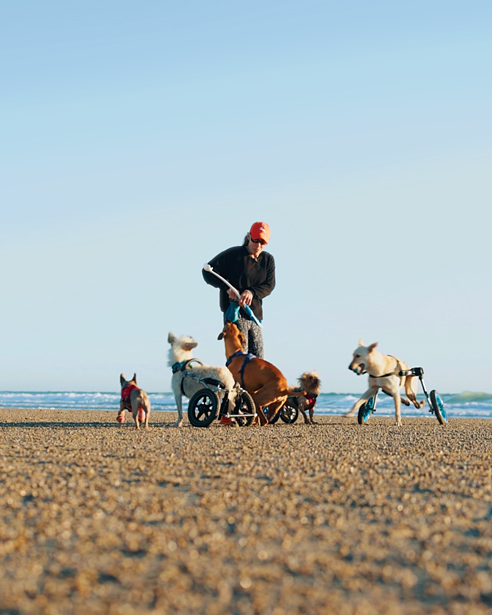
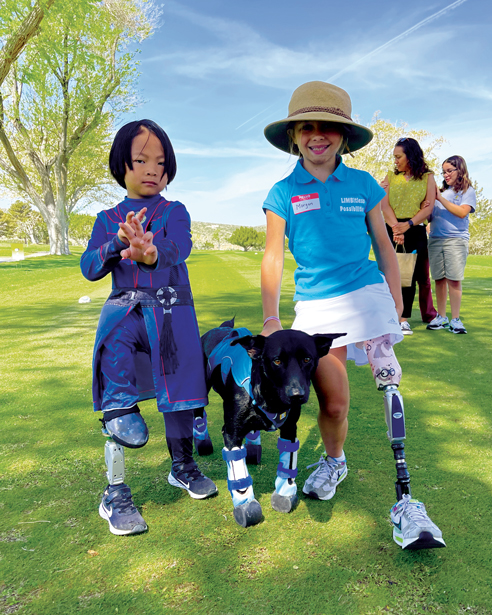
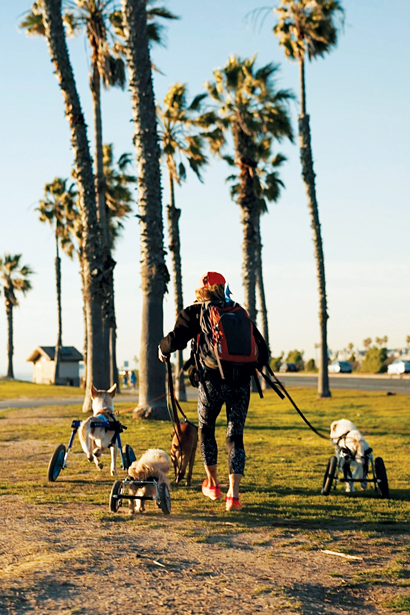
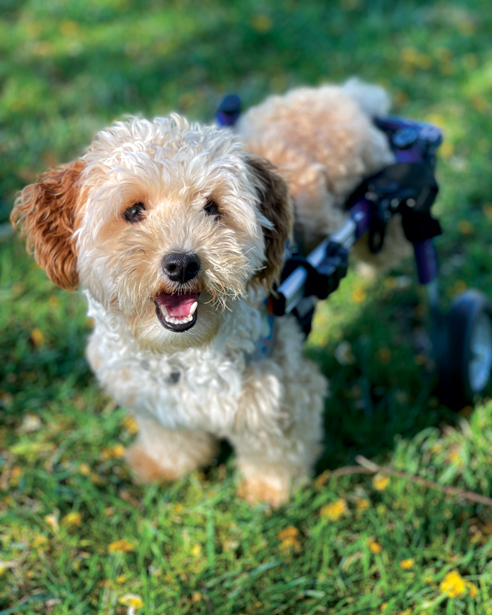
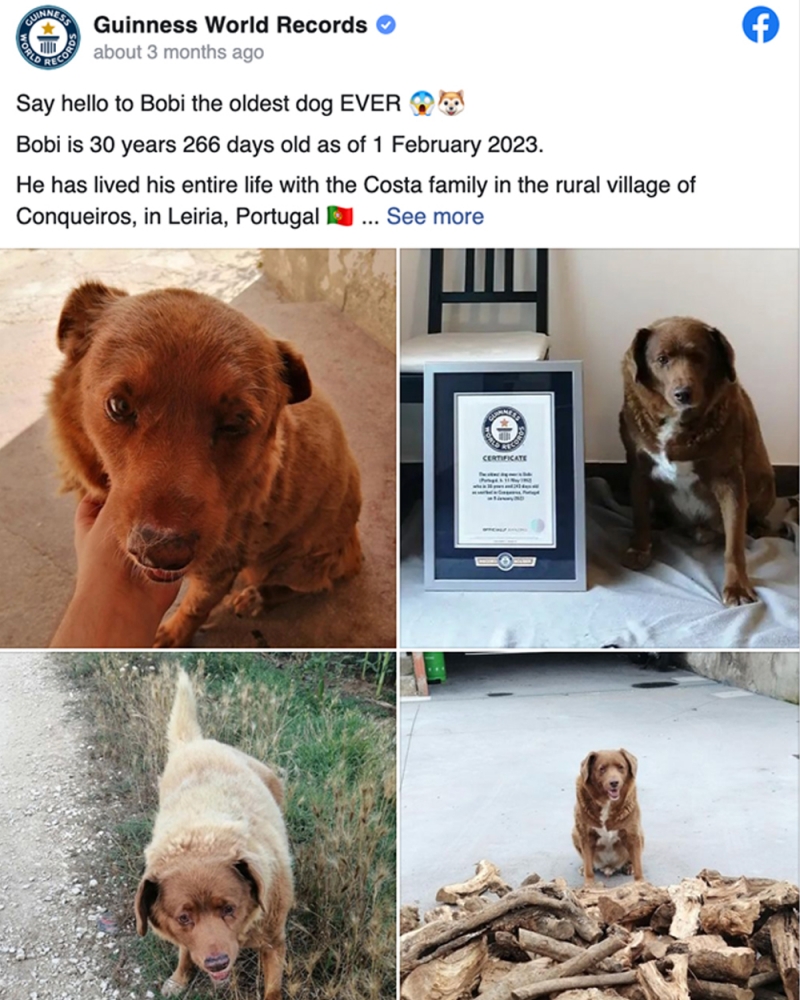



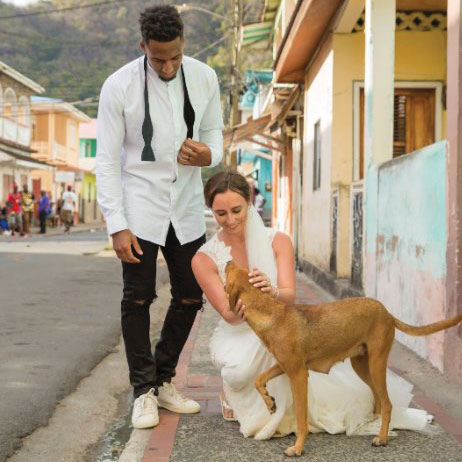
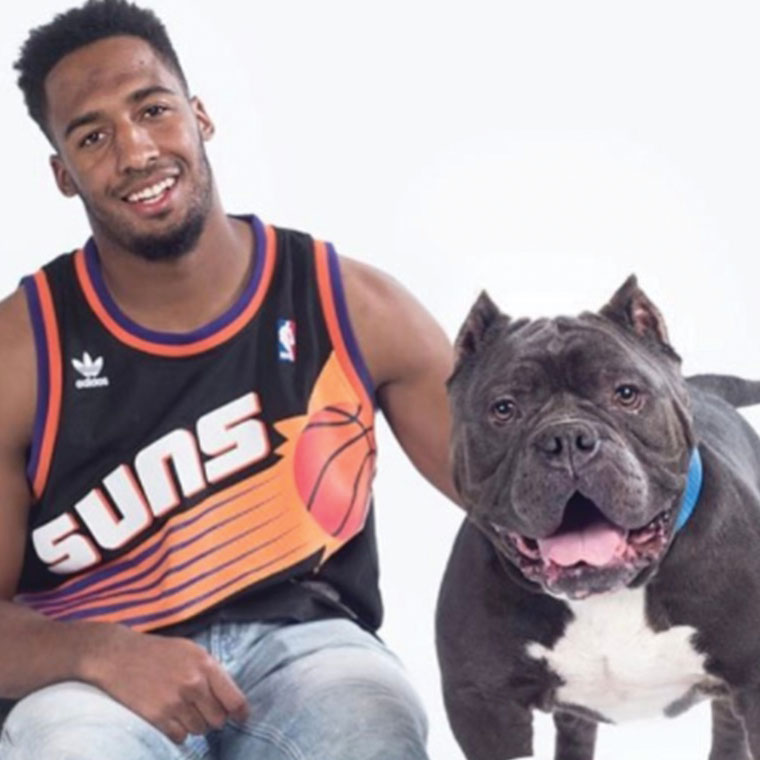
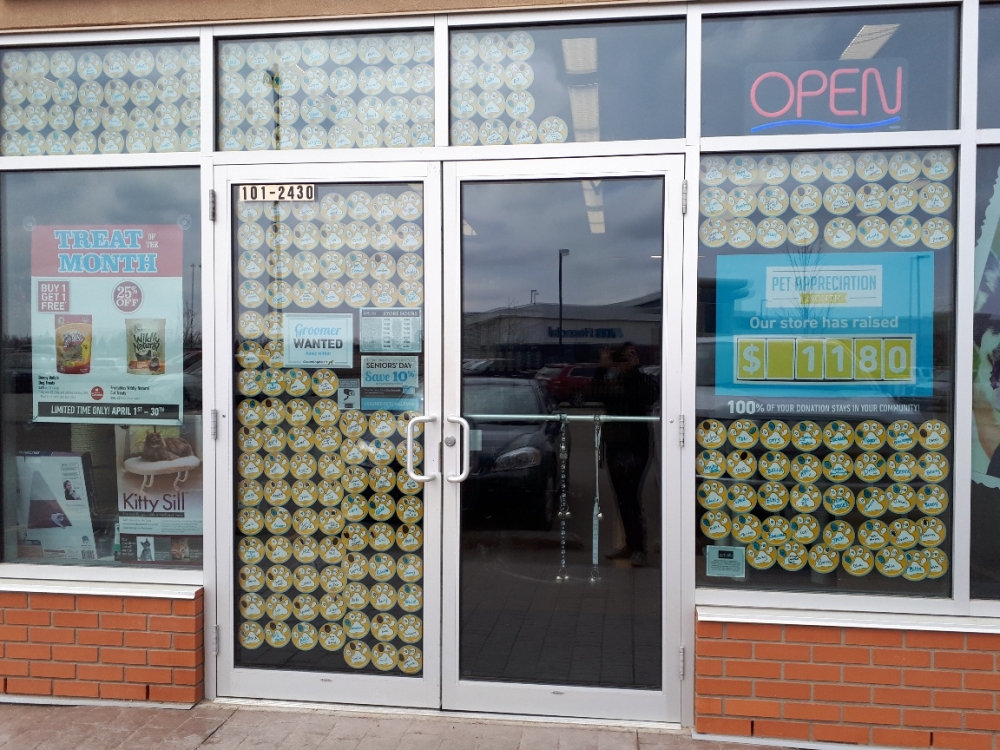
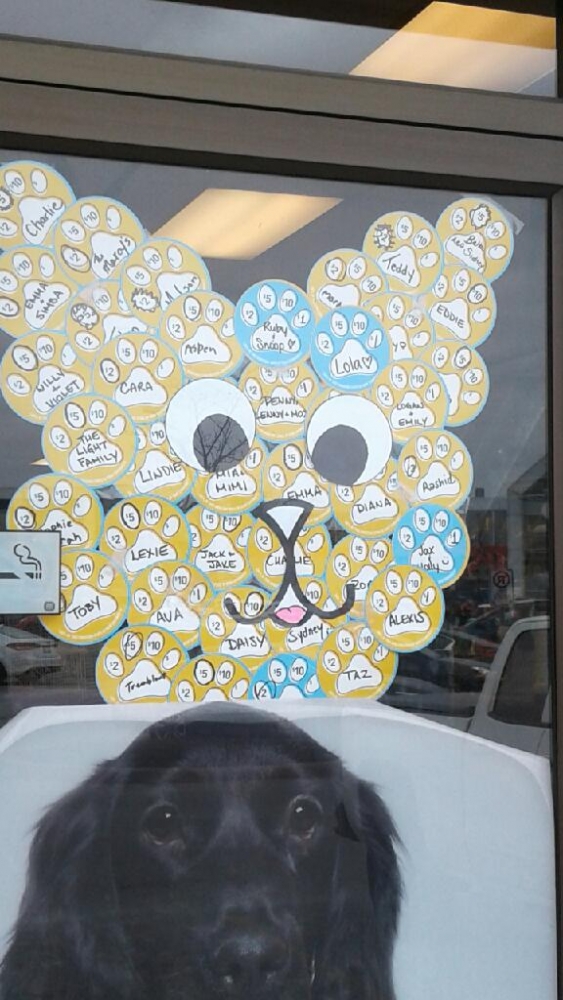
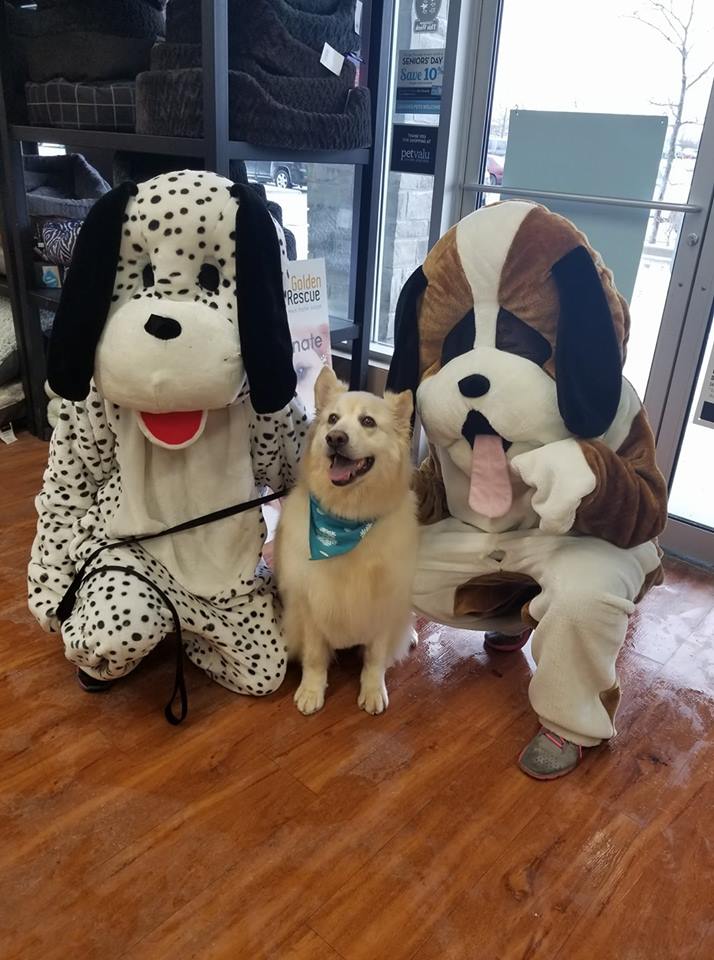


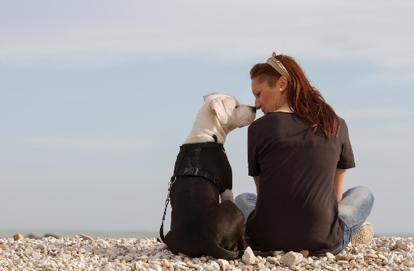
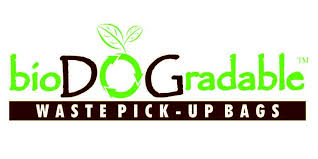
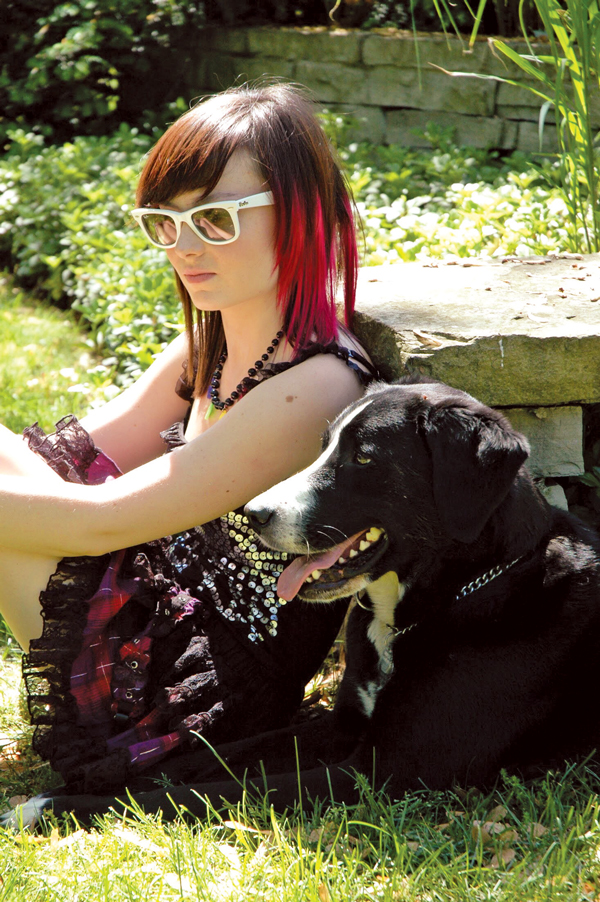 Unsurprisingly, Molly is a passionate guide dog advocate. More surprising perhaps is that, though just 24, she is a riveting speaker on subjects such as overcoming adversity, bullying, and embracing diversity, a talent she has leveraged to build a successful career as a sought-after motivational speaker for audiences as large as 20,000 people, ranging from middle-school students to CEOs at Fortune 500 companies.
Unsurprisingly, Molly is a passionate guide dog advocate. More surprising perhaps is that, though just 24, she is a riveting speaker on subjects such as overcoming adversity, bullying, and embracing diversity, a talent she has leveraged to build a successful career as a sought-after motivational speaker for audiences as large as 20,000 people, ranging from middle-school students to CEOs at Fortune 500 companies.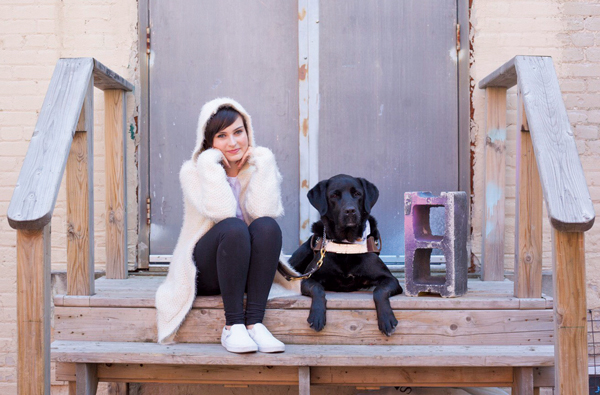
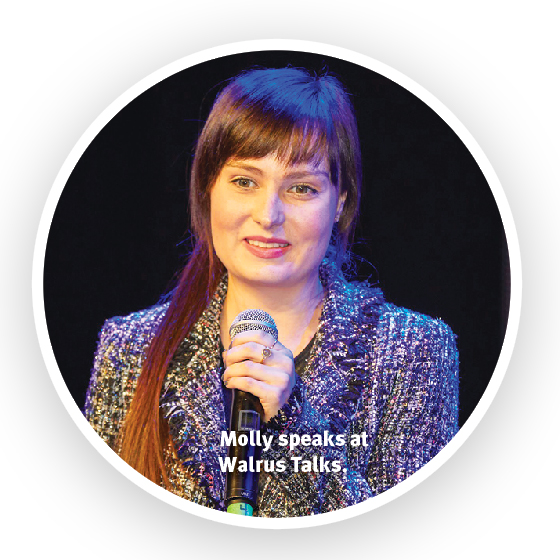 “It’s a work in progress to raise awareness for this issue,” says Molly. “People who use fake service dogs don’t understand. They think it’s an easy way to get to bring their pets everywhere, but there are real implications for our community and it causes a lot of issues that people don’t realize. Disabilities come in all shapes and sizes and you can’t always tell who needs a service dog,” she says. “Mainstream media perpetuates what disabilities look like. We don’t look a certain way or fit into a certain box.”
“It’s a work in progress to raise awareness for this issue,” says Molly. “People who use fake service dogs don’t understand. They think it’s an easy way to get to bring their pets everywhere, but there are real implications for our community and it causes a lot of issues that people don’t realize. Disabilities come in all shapes and sizes and you can’t always tell who needs a service dog,” she says. “Mainstream media perpetuates what disabilities look like. We don’t look a certain way or fit into a certain box.”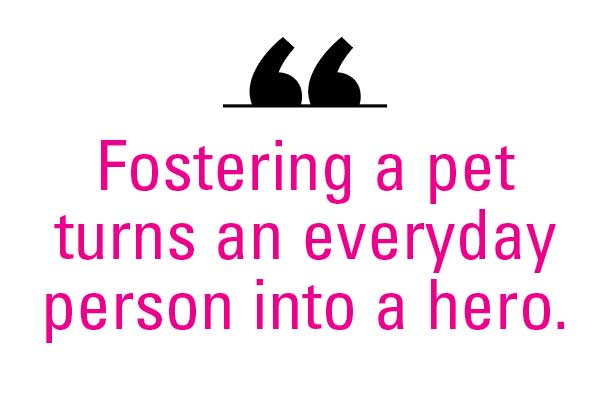 While they have their foster pet, foster parents can teach the animal what Traci calls lifesaving skills—“for example, for a younger dog or puppy, learning to love their crate is an invaluable lesson that will help prevent the pup from becoming another tragic statistic at a shelter in the future,” she says.
While they have their foster pet, foster parents can teach the animal what Traci calls lifesaving skills—“for example, for a younger dog or puppy, learning to love their crate is an invaluable lesson that will help prevent the pup from becoming another tragic statistic at a shelter in the future,” she says.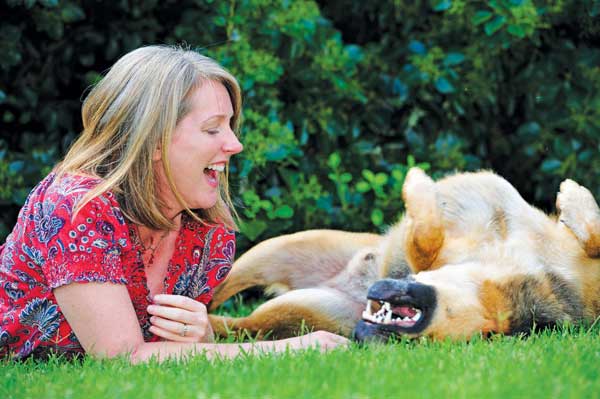 “When you see a pet at a shelter and you take it home, it’s a miracle when it works out—you haven’t really met yet,” she says. Fostering, she says, allows prospective pet owners to dip their toes in. “It’s a great way to ‘try before you buy,’ and be a little more circumspect about who you invite into your home for 10 years.”
“When you see a pet at a shelter and you take it home, it’s a miracle when it works out—you haven’t really met yet,” she says. Fostering, she says, allows prospective pet owners to dip their toes in. “It’s a great way to ‘try before you buy,’ and be a little more circumspect about who you invite into your home for 10 years.”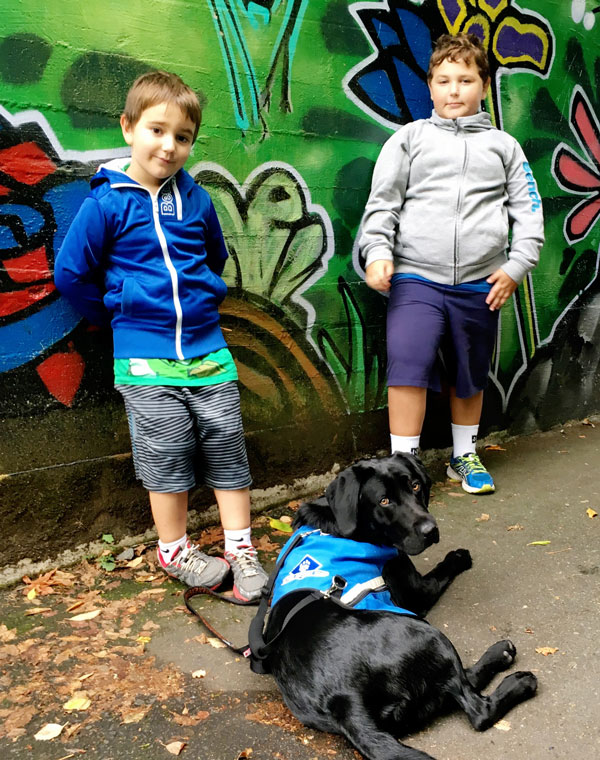 Early on we learned neither Sawyer nor Ryker understood the concept of personal safety and had the tendency to bolt. Bolting or running off happens in an instant with no predictability and can be triggered by anything, for reasons we don't always understand. Struggles with social situations, anxiety, and sensory challenges also impact our day-to-day lives. The boys need one-on-one support outside of our home; if two adults aren't available we can't go out which can be very isolating at times.
Early on we learned neither Sawyer nor Ryker understood the concept of personal safety and had the tendency to bolt. Bolting or running off happens in an instant with no predictability and can be triggered by anything, for reasons we don't always understand. Struggles with social situations, anxiety, and sensory challenges also impact our day-to-day lives. The boys need one-on-one support outside of our home; if two adults aren't available we can't go out which can be very isolating at times.